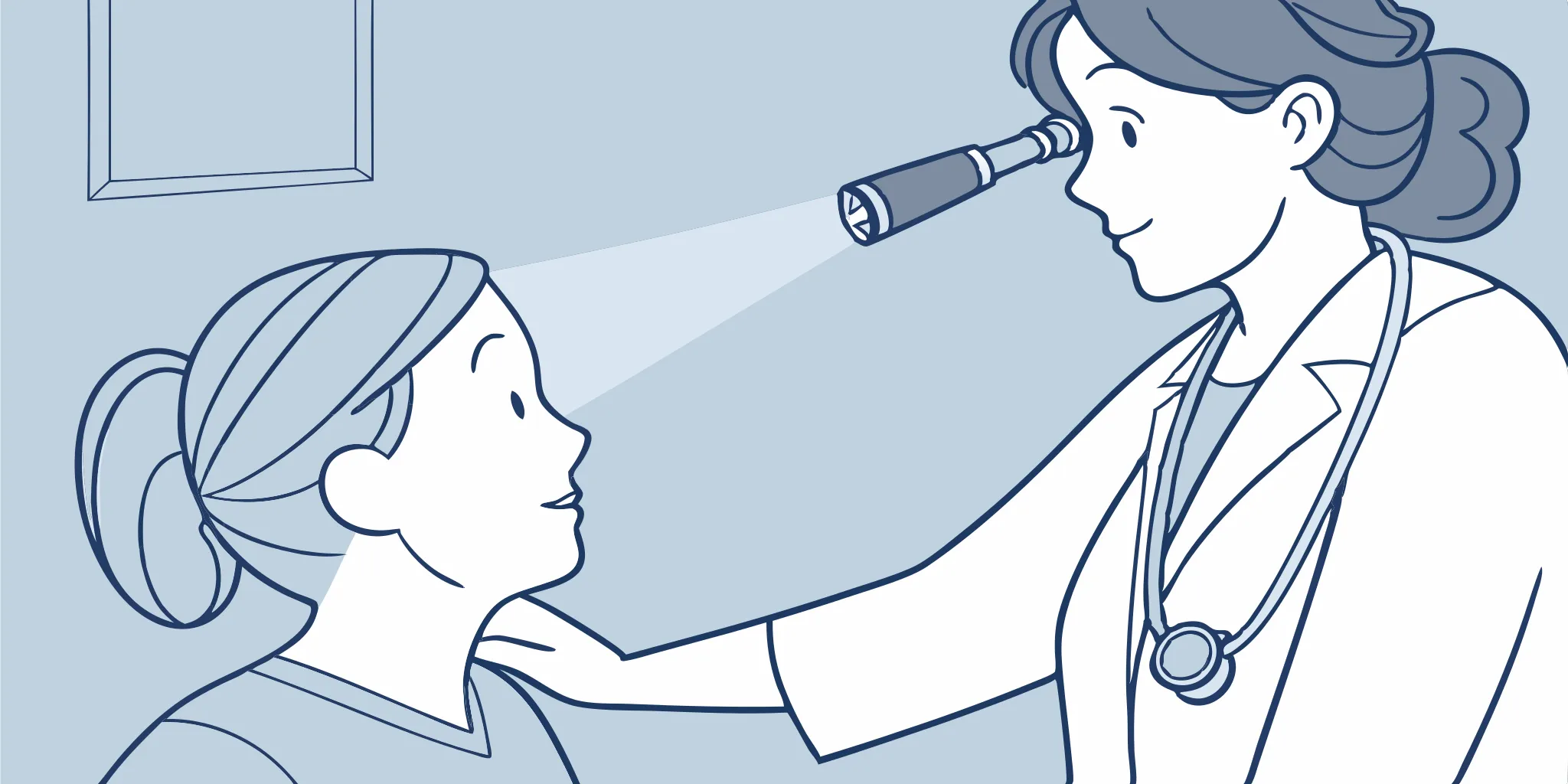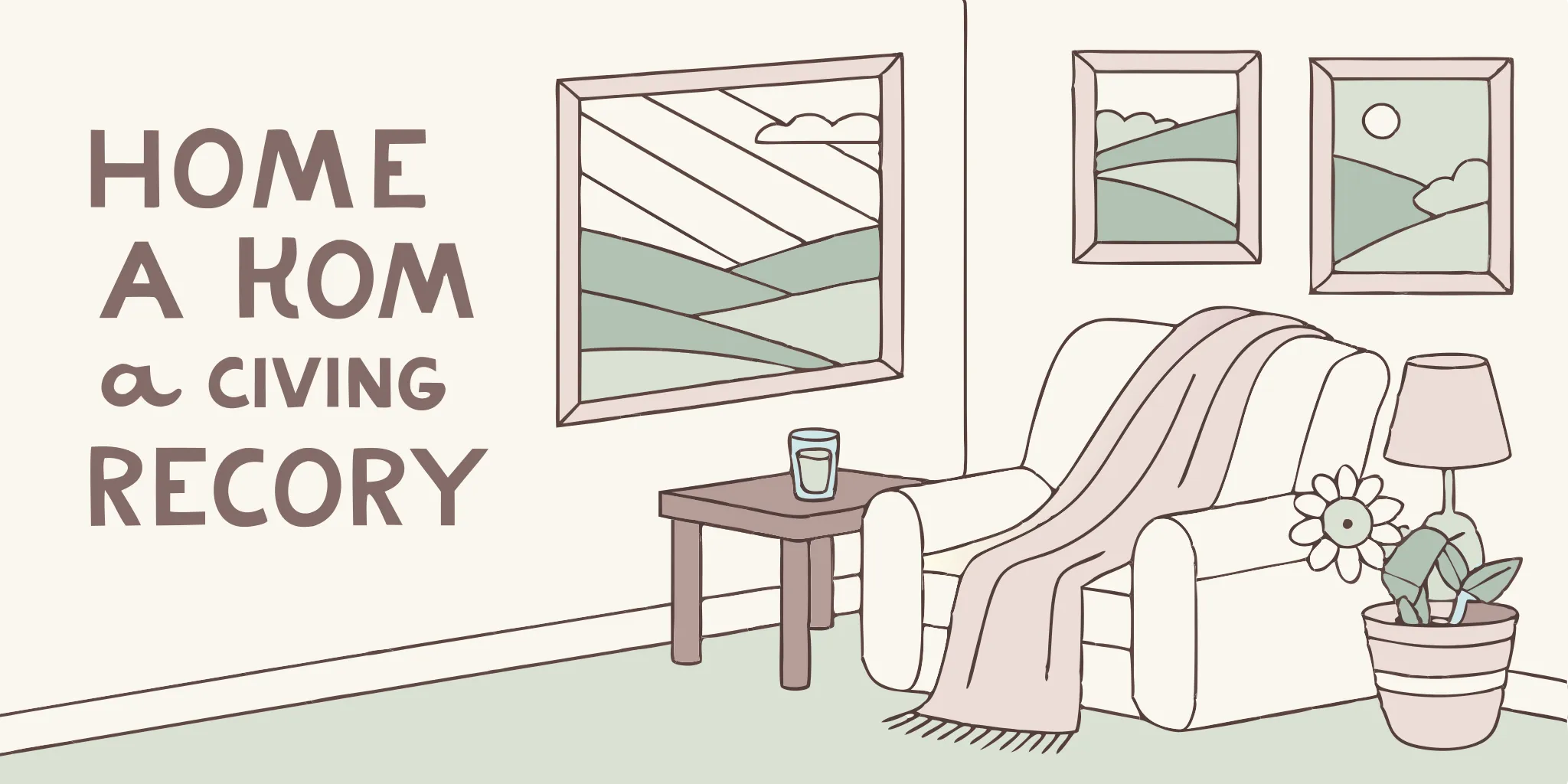Recovering from a concussion can feel like navigating a maze blindfolded. One moment you’re fine, the next you’re grappling with a constellation of symptoms, from headaches and dizziness to brain fog and emotional swings. It’s a journey fraught with uncertainty, especially when symptoms linger longer than expected. This is the reality for many individuals who experience persistent post-concussion syndrome (PPCS), a condition where symptoms continue for weeks, months, or even years after the initial injury. This exploration delves into the complexities of concussion recovery, offering insights into why symptoms persist, the latest advancements in diagnosis and treatment, and practical strategies for managing your recovery journey. We’ll also touch upon the parallels and differences between concussion recovery and recovery from brain surgery, highlighting the brain’s remarkable resilience and the importance of a comprehensive approach to healing.
Key Takeaways
- Brain recovery is a personal journey: Healing from brain surgery or a concussion is a multifaceted process, influenced by factors like age, injury specifics, and pre-existing conditions. Cognitive and emotional symptoms are common and can significantly affect daily life.
- A combined approach supports healing: Your brain’s remarkable ability to adapt and reorganize, known as neuroplasticity, plays a vital role in recovery. Combining various therapies, including physical, vestibular, vision, and cognitive rehabilitation, along with psychological support like CBT, is often the most effective approach.
- Active involvement is key to recovery: Take an active role in your healing by understanding your symptoms, utilizing available resources like those on Concussion Hub, and seeking professional guidance when needed. Combining professional support with self-care strategies empowers you to navigate the recovery process effectively.
What is Brain Recovery? From Surgery to Concussions
Brain recovery, whether from surgery or a concussion, is a complex process. Think of it less like setting a broken bone and more like rehabilitating a sprained ankle—there are different phases, and the timeline isn’t always straightforward. Many factors influence how your brain heals, including your age, the specific area affected, and even your pre-existing conditions. Recovering from brain surgery for a tumor, for example, will be different than recovering from a concussion sustained playing sports. Brain surgery recovery often involves a longer, more structured rehabilitation process, while concussion recovery, though sometimes lengthy, focuses on gradually resuming normal activity.
One common thread between these two types of brain injuries is their impact on cognitive function. Cognitive and emotional symptoms can be subtle after a concussion, sometimes developing slowly after the initial injury. These symptoms, which range from difficulty concentrating to mood changes, affect how your brain processes information. Similarly, after brain surgery, patients often experience cognitive challenges during healing. These changes can significantly affect daily life, making everyday tasks like working, studying, or even socializing more difficult.
Understanding the biopsychosocial model00017-2/fulltext) of recovery is crucial. This model recognizes that recovery isn’t just about the physical healing of the brain. Psychological and social factors, such as stress levels and support systems, play a significant role in how well and how quickly someone recovers. Whether you’re dealing with the aftermath of brain surgery or navigating concussion recovery, remember that healing is a multifaceted journey. Explore Concussion Hub’s resources, including our audio guide on concussion recovery and articles on memory problems after a head injury, for practical advice and support.
How Resilient is the Human Brain?
It’s a question that inspires awe and curiosity: just how resilient is the human brain? The answer, thankfully, is remarkably so. Our brains possess an incredible ability to adapt and heal, even after significant trauma. This inherent resilience is largely due to a phenomenon called neuroplasticity.
Neuroplasticity: How the Brain Adapts
Neuroplasticity is the brain’s capacity to reorganize itself by forming new neural connections throughout life. Think of it as your brain’s superpower—its ability to learn, adapt, and recover. This continuous process allows the brain to compensate for injury and disease and adjust to new situations. Even after a stroke or the removal of an entire brain lobe, as one healthcare professional observed, patients can experience significant recovery, returning to work and regaining a sense of normalcy. Witnessing this remarkable adaptation firsthand, the same professional described the inspiring progress of stroke patients over time. This inherent adaptability offers hope for recovery from various brain injuries, including concussions. For more insights into concussion recovery, explore resources like Conquering Memory Problems After a Head Injury and Navigating Concussion Recovery: An Introductory Audio Guide.
What Factors Contribute to Recovery After Brain Surgery?
While the brain demonstrates remarkable resilience, the road to recovery after an injury like brain surgery is influenced by a variety of factors. Medical professionals emphasize that age, the specific area of the brain affected, and overall medical history all play a role. Immediately following neurosurgery, the priority is maintaining stable neurological function and preventing further complications, as detailed in the Anaesthesia Journal30071-0/fulltext). Cognitive changes, such as impacts to memory, concentration, and problem-solving, are also possible after brain surgery. These changes can be temporary or long-term, depending on the individual and the nature of the procedure. Understanding these factors helps set realistic expectations for the recovery journey. For practical advice on early steps and strategies after a concussion, see What should I do after a concussion. Further information on memory problems after concussions can be found in Can’t Remember Yesterday? Decoding Memory Problems After a Concussion. Personal stories, like My Concussion Recovery: From a Devastating Fall to a Triumphant Return, can also provide valuable insights and support.
The Concussion Puzzle: Why Symptoms Linger
Recovering from a concussion isn’t a one-size-fits-all experience. While many people feel better within a few weeks, others find symptoms lingering much longer. This can be frustrating and confusing, especially when you’re eager to return to your normal life. Let’s explore why some concussion symptoms persist and what you can do.
Typical Concussion Recovery: How Long Does It Take?
Most people recover fully within a few weeks after a concussion. This involves a gradual easing of symptoms like headaches, dizziness, and difficulty concentrating. Rest is essential in the early stages, followed by a gradual return to your usual activities as tolerated. However, everyone’s recovery is unique. Factors like age, past concussions, and the force of the initial impact can all influence recovery time. Sometimes, symptoms can last beyond the typical recovery period, leading to a diagnosis of Post-Concussion Syndrome (PCS). For guidance on immediate steps and strategies after a concussion, see this helpful guide. You can also find personal recovery stories, offering real-life experiences of navigating this journey.
Persistent Post-Concussion Syndrome: What Is It?
When concussion symptoms continue for weeks, months, or even years after the initial injury, it might be diagnosed as Persistent Post-Concussion Syndrome (PPCS). This can involve a variety of physical symptoms like headaches and dizziness, cognitive challenges such as memory issues and trouble focusing, and emotional shifts like irritability and anxiety. Experts generally define PPCS as symptoms lasting for at least four to six weeks. Understanding the different types of memory problems after a concussion can be especially useful. If you’re dealing with memory issues after a head injury, this resource offers practical strategies. This introductory audio guide provides a helpful overview of concussion recovery. Managing PPCS often involves a combination of therapies tailored to your specific symptoms, including physical therapy, vestibular therapy, vision therapy, and cognitive rehabilitation.
Why Are Lingering Concussion Symptoms a Mystery?
For some, concussion recovery is straightforward. But for others, symptoms like headaches, dizziness, and difficulty concentrating can persist for weeks, months, or even longer. Why some people recover quickly while others experience lingering symptoms remains a complex question. Scientists are working to unravel the many factors that contribute to these varied recovery timelines. Concussion Hub offers additional resources, including articles on conquering memory problems and an introductory audio guide on navigating concussion recovery.
The Complexities of Brain Injuries
Concussions, classified as mild traumatic brain injuries (mTBI), are more complex than they appear. While they don’t typically show up on standard CT scans, advanced neuroimaging techniques are revealing subtle changes in the brain after a concussion. Diffusion tensor imaging (DTI), a type of MRI, can detect disruptions in the brain’s white matter—the communication pathways that connect different brain regions. These disruptions may offer clues about why some individuals experience persistent symptoms. Research in this area is ongoing, and scientists are hopeful that advanced imaging will eventually help predict which patients are at higher risk for long-term problems. The growing body of neuroimaging research00002-3/fulltext) is shedding light on both the immediate and long-term effects of concussions on the brain.
Potential Biological and Genetic Factors
While brain imaging offers important insights, it’s only one piece of the puzzle. The biopsychosocial model00017-2/fulltext) of concussion recovery recognizes the intricate interplay of biological, psychological, and social factors in shaping an individual’s experience. For example, pre-existing mental health conditions, such as anxiety or depression, can influence symptom duration. Similarly, social support systems and access to appropriate concussion care can play a significant role in recovery. Researchers are also exploring the influence of genetics on concussion recovery. Studies, like the one on functional recovery and quality of life after TBI, suggest that individual genetic makeup may influence how the brain responds to injury and heals over time. A comprehensive approach considering all these factors is crucial for understanding and treating persistent post-concussion symptoms, sometimes referred to as post-concussion syndrome. More research is needed to fully understand these complex interactions and develop more targeted treatment strategies. You can find more information on memory problems after concussion on Concussion Hub. And for a personal perspective, read one individual’s story of recovery from a devastating fall.
How Concussions Affect You Cognitively and Emotionally
A concussion can significantly impact both your cognitive abilities and emotional well-being. Understanding these effects is crucial for effective recovery.
Common Cognitive Symptoms and Their Impact
Cognitive symptoms affect how your brain processes information. You might experience dazed behavior or sluggish thinking. These can range from difficulty concentrating to problems with memory and decision-making. Princeton Medicine points out that dazed behavior and sluggish thinking are among the most recognizable signs. These cognitive challenges can make everyday tasks, like working or studying, much harder. As the Concussions Ontario guidelines explain, these symptoms can disrupt your ability to function at work, school, and in social settings. For more information on memory problems after a head injury, check out this resource.
Emotional Challenges in Recovery
Recovering from a concussion isn’t just about physical healing. It also involves navigating emotional challenges. Many individuals experience increased irritability, anxiety, and even depression. Post-concussion syndrome (PCS), a complex condition that can develop after a concussion, often involves a combination of physical, cognitive, and emotional symptoms lasting for several weeks or even longer. Verywell Health offers a detailed explanation of PCS, its symptoms, and treatment options. The Neuroscience Group highlights that PCS can persist for a minimum of four to six weeks. These emotional symptoms can significantly impact your relationships and overall quality of life. Concussion Hub offers an introductory audio guide on navigating concussion recovery.
How Symptoms Disrupt Daily Life
Whether cognitive or emotional, lingering concussion symptoms can disrupt your daily routine. Simple tasks that once felt easy can become incredibly challenging. Cognitive FX explains how persistent symptoms can interfere with work, social interactions, and overall quality of life. These challenges can lead to frustration, isolation, and difficulty returning to your normal activities. Even seemingly unrelated procedures, like brain surgery, can have similar cognitive impacts, affecting memory, concentration, and problem-solving, as noted by Statcare. Understanding the potential for these disruptions is the first step toward developing coping strategies and seeking appropriate support. This article offers early steps and strategies after a concussion. For additional insights and personal experiences, explore more resources and stories on Concussion Hub.
Advancements in Concussion Research and Diagnosis
Understanding how concussions affect the brain is constantly evolving. Researchers are developing new tools and techniques to diagnose and manage concussions more effectively, leading to a more comprehensive understanding of brain injury and recovery.
Cutting-Edge Brain Imaging
Advanced brain imaging techniques are giving medical professionals a clearer picture of what happens inside the brain after a concussion. While standard CT scans are helpful for detecting skull fractures or bleeding, they often miss the subtle changes caused by a concussion. Newer methods like diffusion tensor imaging (DTI), a type of MRI, can identify microscopic damage in the brain’s white matter. This white matter is responsible for communication between different brain regions. DTI can reveal disruptions in these pathways, offering clues about why some individuals experience persistent symptoms. This ability to pinpoint specific areas of damage helps predict which patients might face longer recovery times and allows for more targeted treatment plans. Research on neuroimaging and concussion continues to shed light on the acute and long-term effects of even mild traumatic brain injuries (mTBI), paving the way for more precise diagnoses and personalized care. Further research00002-3/fulltext) emphasizes the importance of advanced imaging in understanding the complexities of concussion recovery.
The Role of Genetic Testing
Genetic testing is another exciting area of concussion research. Scientists are exploring how individual genetic differences might influence a person’s vulnerability to concussions and their recovery trajectory. Some studies suggest that certain genes could play a role in how the brain responds to trauma and how quickly it heals. This research acknowledges the many factors that contribute to persistent post-concussion symptoms, highlighting the need for a more complete understanding of this complex condition. The biopsychosocial model of concussion recovery emphasizes that biological factors, including genetics, interact with psychological and social factors to influence recovery. Understanding these interactions00017-2/fulltext) is crucial for developing effective, personalized treatment strategies.
Therapies for Persistent Concussion Symptoms
If you’re experiencing concussion symptoms that just won’t go away, know that you’re not alone and several therapies can help. While most people recover within a few weeks, some experience symptoms that persist for months or even longer. This is often called persistent post-concussive syndrome (PPCS). Thankfully, various therapies can address these lingering issues and support your recovery.
Physical and Vestibular Therapy
Physical and vestibular therapy play a crucial role in addressing specific physical symptoms after concussion. Physical therapy often focuses on cervical issues that can arise after a head injury, working to improve neck mobility and reduce pain. Vestibular therapy targets problems with balance and dizziness, common after concussions. These therapies use exercises and techniques to retrain the brain and body to work together, helping you regain stability and coordination. Aerobic exercise, kept below the level where it aggravates symptoms, is also frequently recommended to improve overall function and reduce symptom severity.
Vision Therapy and Cognitive Rehabilitation
Vision problems, such as blurred vision, double vision, and difficulty focusing, are frequent after a concussion. Vision therapy helps retrain the visual system and improve eye coordination. Cognitive rehabilitation focuses on improving cognitive skills like memory, attention, and processing speed. These therapies often involve exercises and strategies to strengthen these functions, helping you regain mental clarity and efficiency with daily tasks. For persistent symptoms, a referral to an interdisciplinary concussion clinic can be beneficial, allowing practitioners from multiple disciplines to coordinate care and provide comprehensive support.
Cognitive-Behavioral Therapy (CBT) for Concussion Recovery
Cognitive-behavioral therapy (CBT) is a type of talk therapy that can be especially helpful for managing the emotional and psychological challenges that can accompany persistent concussion symptoms. CBT for concussion recovery focuses on identifying and changing negative thought patterns and behaviors that might contribute to your symptoms. It provides coping mechanisms to manage anxiety, depression, and other emotional difficulties that can arise during recovery. This approach empowers you to actively manage your symptoms and improve your overall well-being.
Emerging Treatments and Multi-Modal Approaches
Concussion management is constantly evolving, with new research leading to emerging treatments and a greater focus on multi-modal approaches. Multi-disciplinary care, which involves a team of healthcare professionals from different disciplines working together, is becoming increasingly common. This collaborative approach ensures all aspects of your recovery are addressed—from physical and cognitive symptoms to emotional and psychological well-being. This comprehensive method can lead to more effective and lasting improvements in symptom management and overall quality of life. For more information and support, check out Concussion Hub resources like our audio guide on navigating concussion recovery and articles on memory problems after a head injury.
Why Comprehensive Care Matters
Recovering from a concussion isn’t always a straight line. Sometimes, symptoms linger, making it tough to return to your normal routine. That’s where comprehensive care comes in. It’s a team-based approach that considers every aspect of your recovery, not just individual symptoms.
Interdisciplinary Treatment Teams
Think of an interdisciplinary treatment team as a group of experts, each contributing their specialized knowledge. This might include a physician, a neuropsychologist, a physical therapist, an occupational therapist, and even a speech-language pathologist. This collaborative approach ensures you receive well-rounded care, addressing everything from physical symptoms to cognitive and emotional challenges. Research suggests this team-based method can be especially helpful for people with persistent symptoms, offering better support and coordination of care. For those experiencing a prolonged recovery, a referral to an interdisciplinary concussion clinic can be incredibly helpful.
Personalized Treatment
Every concussion is unique, and so is every recovery. Personalized treatment recognizes this by tailoring therapies to your specific needs and symptoms. This might involve cognitive-behavioral therapy (CBT) adapted for concussion-related challenges or a combination of therapies, such as physical therapy, vision therapy, and cognitive rehabilitation. This individualized approach acknowledges that one size doesn’t fit all and focuses on finding the most effective strategies for your recovery.
Take Charge of Your Concussion Recovery
Recovering from a concussion is an active process, and you play a crucial role. Taking charge of your recovery can significantly influence how quickly and effectively you heal. This section offers practical self-care tips and guidance on when to seek additional medical support.
Self-Care for Managing Symptoms
Managing concussion symptoms often involves a combination of strategies tailored to your specific needs. Think of it as building a toolbox of techniques. Cognitive Behavioral Therapy (CBT) is one such tool. While CBT shows promise for persistent post-concussion symptoms (PPCS), it’s most effective when adapted to address concussion-related issues, like managing stress related to your symptoms or developing coping mechanisms for cognitive challenges. Read more about CBT for concussion recovery.
Beyond CBT, a range of therapies can be helpful, including aerobic exercise (at a level below your symptom threshold), physical therapy focusing on the neck, vestibular therapy for balance issues, vision therapy, and cognitive rehabilitation. Finding the right combination of therapies is key, as each person’s experience with concussion is unique. An interdisciplinary approach, where practitioners from different fields coordinate your care, can be particularly beneficial for managing persistent symptoms. Learn more about managing prolonged concussion symptoms. This collaborative approach ensures all aspects of your recovery are addressed. Explore additional resources on managing concussion and PPCS.
When to Seek More Medical Help
While many concussion symptoms resolve with time and self-care, knowing when to seek additional medical attention is essential. If you’ve undergone brain surgery related to your concussion, the initial period after the procedure requires close monitoring to ensure a smooth recovery, detect any neurological changes early, and maintain overall stability. Understand the general principles of post-operative neurosurgical care.30071-0/fulltext)
Cognitive symptoms, such as difficulty concentrating or remembering, can significantly impact your daily life, affecting your ability to work, study, and socialize. If these symptoms persist or worsen, reach out to your healthcare provider. They can assess your situation and recommend appropriate interventions. Find more information on cognitive difficulties after concussion. If you experience any new or concerning symptoms after brain surgery, contact your care team. They can determine if these changes require further evaluation or treatment. Get tips on healing from brain surgery. Open communication with your medical team is a cornerstone of successful recovery.
The Future of Concussion Care
Promising Research
Recent advancements in concussion care offer hope for understanding why some symptoms linger after the initial injury. Advanced imaging techniques are playing a key role. For instance, diffusion tensor imaging (DTI) shows promise in identifying concussion patients at higher risk for prolonged symptoms. Unlike standard CT scans, which may overlook subtle brain abnormalities, DTI can detect changes in the brain’s white matter associated with persistent symptoms. This could lead to more targeted treatment strategies. Learn more about how brain scans are improving concussion care.
Cognitive-behavioral therapy (CBT) is also emerging as a valuable tool for managing persistent post-concussive symptoms (PPCS). Research suggests that CBT can be particularly effective when adapted to address concussion-related challenges, emphasizing the importance of individualized treatment plans. Explore the use of CBT for persistent post-concussive symptoms. For additional information on managing memory problems after a head injury, check out Concussion Hub’s resource on conquering memory problems.
The Potential of Personalized Medicine
Personalized medicine represents a significant step forward in concussion care. The biopsychosocial model recognizes that lingering symptoms result from a complex interplay of biological, psychological, and social factors. This model suggests that while the initial injury sets things in motion, the severity and duration of symptoms are influenced by factors unique to each individual. Discover more about the rehabilitation of persistent symptoms00017-2/fulltext).
Furthermore, research indicates that recovery from traumatic brain injury (TBI), including concussions, is affected by various factors, such as genetics and individual health profiles. This highlights the need for personalized treatment approaches tailored to each patient’s specific needs. Read more about the factors influencing recovery from TBI. For practical advice on what to do after a concussion, visit Concussion Hub’s resource on early steps and strategies. They also offer an audio guide on navigating concussion recovery.
Related Articles
- Concussion Guide: Symptoms, Recovery, and Prevention – Concussion Hub
- What should I do after a concussion? – Concussion Hub
- Concussion Recovery: A Practical Guide to Healing – Concussion Hub
- Concussion Recovery: Managing the Emotional & Cognitive Challenges – Concussion Hub
- 6 Stages of Concussion Recovery: Your Complete Guide – Concussion Hub
Frequently Asked Questions
How long does it typically take to recover from a concussion?
Most people recover within a few weeks, but it really depends. Some people bounce back quickly, while others experience symptoms for much longer. Factors like your age, past concussions, and the severity of the impact all play a role. Recovery isn’t a race, so be patient with yourself.
What is post-concussion syndrome (PCS)?
If your symptoms linger for weeks or even months after the initial injury, you might be diagnosed with PCS. This can involve a mix of physical symptoms like headaches and dizziness, cognitive challenges like difficulty concentrating, and emotional changes like irritability. It’s a complex condition, and managing it often requires a combination of therapies.
What kinds of therapies are helpful for persistent concussion symptoms?
Several therapies can help, including physical therapy, vestibular therapy for balance issues, vision therapy, and cognitive rehabilitation. Cognitive-behavioral therapy (CBT) can also be really useful for managing the emotional and psychological challenges that often come with persistent symptoms. A comprehensive approach that addresses all aspects of your recovery is usually the most effective.
What is neuroplasticity, and how does it relate to brain recovery?
Neuroplasticity is your brain’s amazing ability to reorganize itself and form new connections. It’s like your brain’s built-in repair system. This adaptability is what allows your brain to recover and compensate for injuries, even after significant trauma.
What should I do if I suspect I have a concussion?
First, seek immediate medical attention. Rest is crucial in the early stages of recovery. Avoid activities that could worsen your symptoms. And don’t hesitate to reach out for support. Concussion Hub offers a variety of resources, including articles and an audio guide, to help you navigate your recovery.






